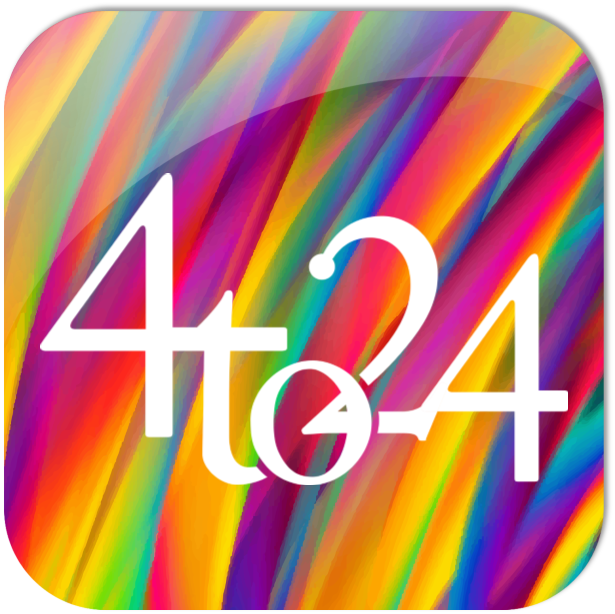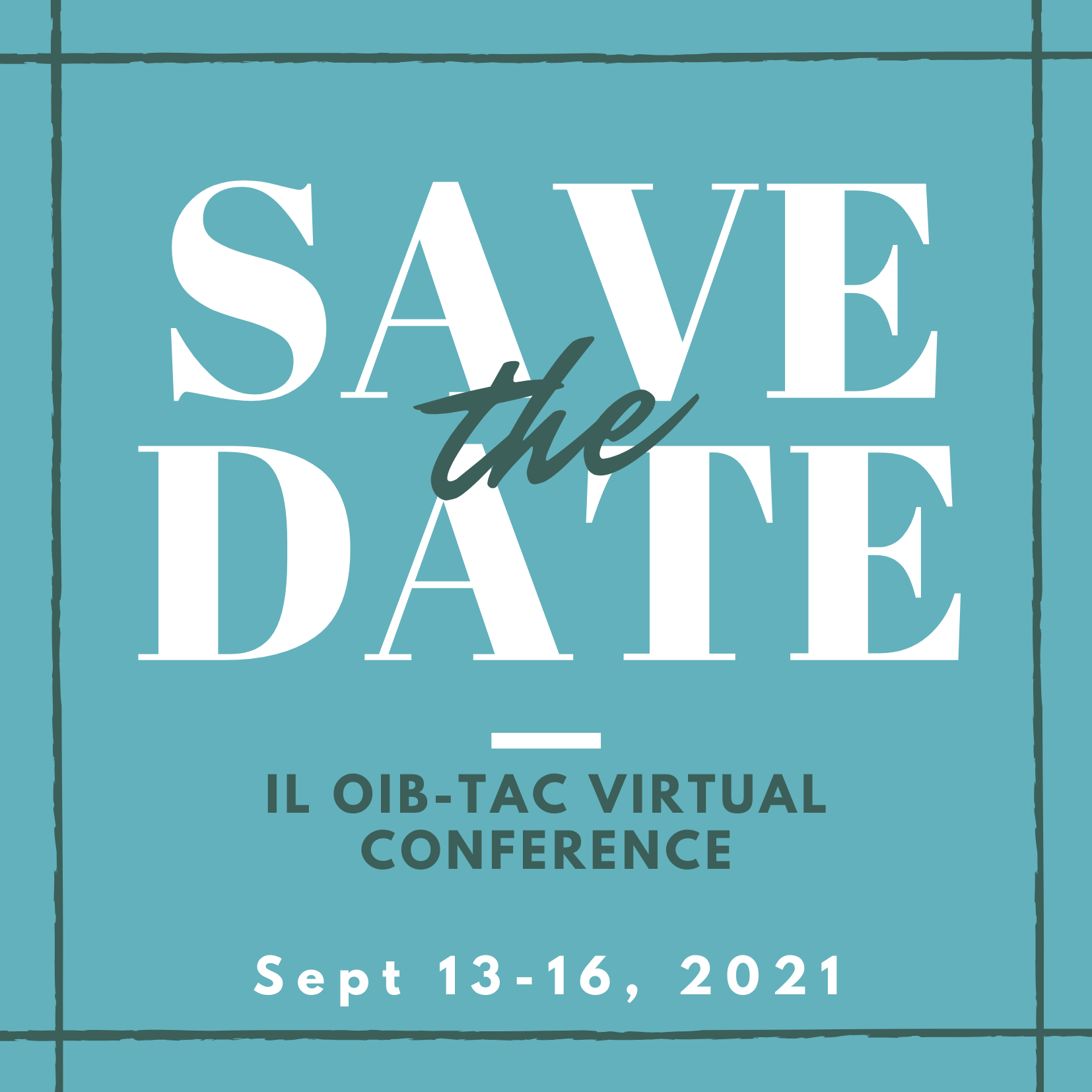The 4to24 App Now Available

Youth with blindness or low vision (B/LV) are more likely to attend post-secondary education compared to the general population of youth, yet are still less likely to be employed as young adults (McDonnall 2010). Many factors such as job market and employer bias likely impact this issue, but one factor is the youth’s preparation for employment. NRTC Researchers decided to tackle this issue by creating a free transition resource known as the 4to24 app.
The “4to24” app can be used by parents of youth with B/LV ages 4 to 24 and youth with visual impairments ages 16 to 24. Along with information, they will receive suggested activities to build skills related to various topics such as travel skills, technology, and independent living skills. The app also provides links to additional online resources and encourages engagement through “push” notifications.
The 4to24 app is available via smartphone and web and is focused on improving employment outcomes for youth with B/LV. The free app is available for iPhones on the Apple App Store and at 4to24.org. Read the NRTC news item for more information about the 4to24 app.
Current Research Highlights: Interactive Video for Employers
Unfortunately, a significant barrier to employment for people who are B/LV is negative employer attitudes. However, in one of our research studies on employer attitudes from the 2015-2020 RRTC grant, we determined that brief, one-on-one meetings between a vocational rehabilitation professional and a hiring manager resulted in significant positive increases in attitudes towards, knowledge about, and intent to hire people who are B/LV.
This current RRTC research project will help us determine if a less labor-intensive method to share information with employers can also be effective. Our possible solution to the labor dilemma is to create an interactive educational video of a blind rehabilitation professional. In this video, viewers will view introductory information and then be presented with a menu of personal and professional questions about B/LV. The three categories of questions are employment-related, general blindness, and curiosity questions. The viewer can then select the questions for which they are most interested in learning the answers.
We obtained input from our Advisory Council, VR professionals, managers-in-training, and individuals with B/LV about the interactive video content– from the introductory script content, questions, and answers! We have also begun selecting answers to the questions – from screening over 100 existing videos to obtaining video submissions.
Our next step is filming the introductory script and remaining content at the Mississippi State University Television Center in mid-July. After filming, we will build the interactive video using our selected software. Finally, we will conduct two separate efficacy studies to determine whether positive changes in attitudes towards, knowledge about, and intent to hire people who are B/LV occur after viewing the video.
For more information about this research project, visit our research project webpage.
Training and Technical Assistance

New Products
We developed a new free resource: The NRTC Community Outreach Guide: How to Host A White Cane Awareness Day Celebration (October 15). This guide will introduce you to the history of White Cane Awareness Day, provide inspiration for activities, and offer general event tips to support you as you create a successful celebration.
We have updated our free Career Advantage for Visually Impaired Persons (V.I.P.s) curriculum. This program was created for youth and adults with B/LV and provides participants with the knowledge and skills to conduct an independent and effective job search. For more information about this self-guided curriculum, read our news item.
New Courses
We have four new courses available:
-
Advice for VR Professionals: Evidence for Effective Meetings with Employers describes a research study and offers practical advice for engaging employers (1-hour CRC, ACVREP, and NBPCB)
-
The Process of Teaching Art explores adaptions to help those who are B/LV participate in creative art projects (1-hour ACVREP)
-
Understanding People Living with Dementia and Vision Loss provides information about dementia, the stages of dementia, and suggests strategies for interacting with individuals who have dementia and vision loss (1-hour ACVREP and NBPCB)
-
An Overview of Independent Living Services for Older Individuals Who are Blind covers basic history, program requirements, factors that affect OIB programs, critical issues in service delivery, best practices, and the Independent Living Older Individuals who are Blind Technical Assistance and Training Center (1-hour ACVREP and NBPCB)
All courses are available through our learning management system. For more information about our courses, visit our Frequently Asked Questions course page.
Other NRTC News
Access Technology in the Workplace Survey
The first survey in our five-year longitudinal study on access technology (AT) use in the workplace by people who are blind or have low vision (B/LV) has launched! We are still recruiting individuals with blindness or low vision (age 21+) who are not employed but are interested in working to be a part of this study. Individuals interested in participating can complete our pre-screening survey or call 662-325-2001 to schedule an appointment for a telephone screening.

Welcome New OIB Program Coordinator
The NRTC is pleased to announce that Lisa Gooden-Hunley has joined the Independent Living Services Older Individuals who are Blind Technical Assistance Center (IL OIB-TAC) as the new Program Coordinator.
NRTC Recruiting Applicants for Vision Specialist Program
The NRTC is recruiting our next class of Vision Specialists in Vocational Rehabilitation. Our online graduate certificate program, funded by the Rehabilitation Services Administration, lasts one year (January to December). Some students will receive stipends to cover the cost of tuition. Applications will be accepted until October 1, 2021. Read our news item for more information.

IL OIB-TAC Conference Open for Registration
The Independent Living Services Older Individuals who are Blind Technical Assistance Center’s (IL OIB-TAC) third annual Technical Assistance Conference is open for registration. It will be held virtually September 13-16 on the Community of Practice website with the theme “Empower, Educate, and Engage.”
Publications, Presentations, and Miscellanies
Publications
Cmar, J.L., & McDonnall, M. C. (2021). Long-term effects of a job search intervention for transition-age youth with visual impairments. Journal of Visual Impairment & Blindness. Advance online publication.
McDonnall, M. C., & Tatch, A. (2021). Educational attainment and employment for individuals with visual impairments. Journal of Visual Impairment & Blindness, 115(2), 152–159.
McKnight, Z. S., Crudden, A., & McDonnall, M. C. (2021). Personal characteristics associated with working after disability onset for people with visual impairments. Journal of Visual Impairment & Blindness, 115(2), 95–105.
Cmar, J. L., & Steverson, A. (in press) Job search activities, job-seeking barriers, and work experiences of transition-age youth with visual impairments. Journal of Visual Impairment & Blindness.
Upcoming Presentations & Workshops
The IL OIB-TAC has upcoming webinars that may be of interest to you. Please save the following dates:
- July 15 (2:00 CST) – learn about adaptive devices that can help individuals in the kitchen, including the use of smart speakers
- August 19 (2:00 CST) – discover resources, technology options, and unique barriers for adults with combined hearing and vision loss